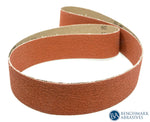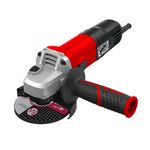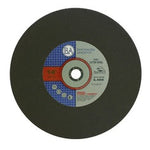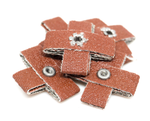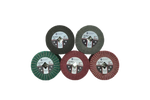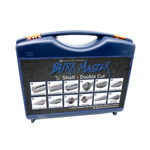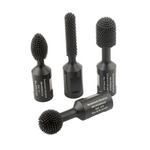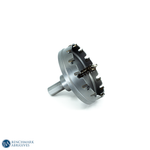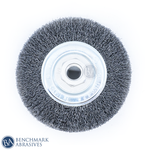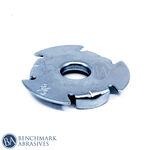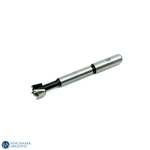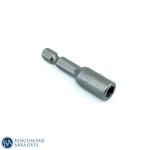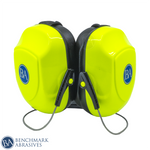
PSA PAD vs Hook & Loop Discs

Sanding discs are part of a sander that does all the diligence. There are many different discs for various jobs, and knowing the precise type that you need for the work you've got to do is significant for anybody employing a sander at work or reception.
Choosing the proper disc for the work is essential, as failing to do so may result in a poor-quality finish or damage to the disc you're trying to sand.
What is a PSA Pad?
PSA (short for pressure-sensitive adhesive) sanding discs have a sticky back and are smooth when used on large pieces, likely to wear out the sandpaper. These discs are suitable for prolonged usage, with many workshops opting to use them until the abrasive is spent. Depending on the coarseness of the disc selected, PSA discs are best suited for use on wood, fiberglass, or metal.
It is usually sold in rolls or boxes of individual discs. PSA discs are fashionable among woodworkers and auto body professionals who work on flat surfaces.
What are Hook and Loop Discs?
Hook and loop sanding discs are made from cloth or paper with a backing material not dissimilar to Velcro. There is a system of hooks and loops to affix the sanding disc to the sander. This makes it extremely easy to vary the disc without sacrificing the standard of disc used. If the sander isn't made to be used with hook and loop sanding discs, you'll purchase a converter pad that can enable them to suit your sander.
The most common shape of a hook and loop sandpaper is a disc. Hook and loop sanding discs are highly versatile because you can purchase them in different grades, from coarse to superfine. This suggests they are suitable for a spread of labor on surfaces, from wood to metal and almost everything in between.
PSA Pad vs Hook and Loop Disc
PSA, or "pressure-sensitive adhesive," is that sticky sandpaper. The sandpaper has an adhesive coating that adheres to the pad, like a sticker. Peel the label off the sandpaper and stick it onto the pad. This sort of sander pad tends to be less costly than hook and loop pads. However, it does have one major drawback. It's tough to modify sandpaper discs without making the discs useless. If you remove the disc and even a touch of dirt or sawdust gets on the adhesive coating, it'll not stick with the pad well. If your application doesn't require you to vary grits often, this is often an excellent format.
Pressure-sensitive adhesive discs offer fast, convenient mounting of sanding discs, rolls, or sheets. Available in various backings, these discs make mounting on a disc sander, orbital sander, rotary sander, and other equipment quick and straightforward. Choose between grits and abrasive coatings like alumina, carbide, diamond, and more.
Hook and loop is the common non-trademark name for Velcro. One side is roofed with hooks, and therefore, the other side is roofed with loops. Once you put them together, the hooks fasten around the loops, and they stay together easily. This technique is simple, durable, and reusable. You'll put the two sides together repeatedly without sacrificing performance.
Hook and loop is the more common sort of pad. Because it's so simple and sturdy, it's excellent, thanks to the attachment of your sandpaper to your sander pad. You'll change sandpaper grits easily once you use a hook and loop during a shop. Usually, you'd start your project with heavy grit sandpaper (like 40 or 80 grit) to try to do the roughest work first. Once you can move to a lighter grit (like 120 or 180), you'll easily peel off the heavy sandpaper disc and place it on the new one. Once you put the heavy grit disc aside, you don't need to worry about getting a little sawdust or other dirt because that will not affect how well it works.
Psa Pad Vs Hook And Loop: Which Is Right For You?
Choosing between PSA pads and hook & loop is wholly based on the desired outcome of your project. PSA pads are perfectly suitable for large-scale projects where the same grit is used frequently. They provide simplicity and cost-effectiveness. However, due to their single-use discs, they are not adaptable and generate waste.
Conversely, hook-and-loop discs offer convenience, are highly flexible, and are suitable for projects requiring regular grit change. They provide reusability and adaptability despite being expensive initially.

